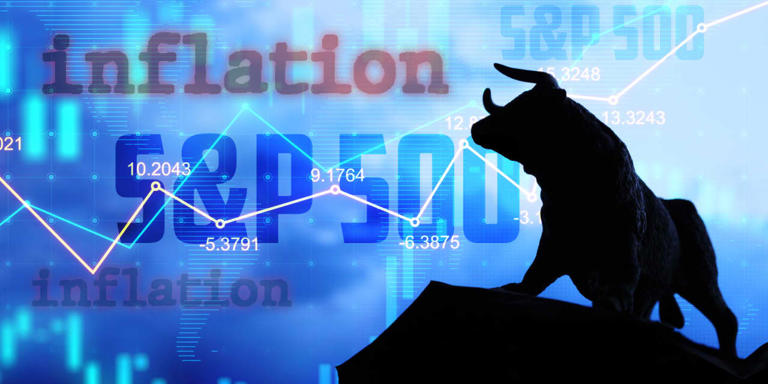The U.S. stock market is bracing for the release of the February inflation report, a critical test for its 2024 bull run and a key indicator of the economy’s trajectory towards a soft landing.
Investors anticipate potential interest rate cuts by the Federal Reserve this year, viewing them as a response to inflation dynamics despite a persistently low unemployment rate. All eyes will be on the consumer-price index data set to be unveiled on Tuesday, as traders seek insights into the timing of possible Fed rate adjustments.
According to Phil Camporeale, a portfolio manager at J.P. Morgan Asset Management, the Fed’s decision-making may not hinge on inflation hitting the 2% target, but rather on preventing further deterioration. He views the current market environment as an opportune moment for risk-taking in the U.S.
While inflation has moderated significantly since its peak in 2022, it remains below the Fed’s target. Notably, January’s consumer-price index data surpassed expectations, leading to a notable market downturn upon its release.
Camporeale highlights the resilience of the U.S. economy, noting that despite inflation concerns, the Fed is still poised to initiate rate cuts this year, signaling positive prospects for stocks.
The latest employment report, released on Friday, revealed stronger-than-anticipated job creation in February. However, it also indicated a cooling in wage growth and downward revisions to payroll gains from previous months.
Camporeale notes that slower wage growth and a moderation in job gains serve to alleviate inflationary pressures. Despite the uptick in the U.S. unemployment rate to 3.9%, it has remained below 4% for over two years, marking the longest such streak since the 1960s. He emphasizes that while the economy displays resilience, it is not accelerating in a manner that would raise concerns about inflationary pressures.
The Federal Reserve has maintained its benchmark rate within the target range of 5.25% to 5.5% — the highest level in 22 years — since July, aiming to achieve sustainable inflation reduction towards its 2% target.
According to Liz Ann Sonders, chief investment strategist at Charles Schwab, if February’s inflation reading deviates significantly from expectations, it could swiftly impact the stock market. She highlights the nuanced relationship between U.S. stocks and the bond market this year, noting that fluctuations in Treasury yields have a more nuanced effect on market breadth rather than solely dictating broad market movements. As yields rise, market breadth may deteriorate, while declining yields may improve market breadth.
